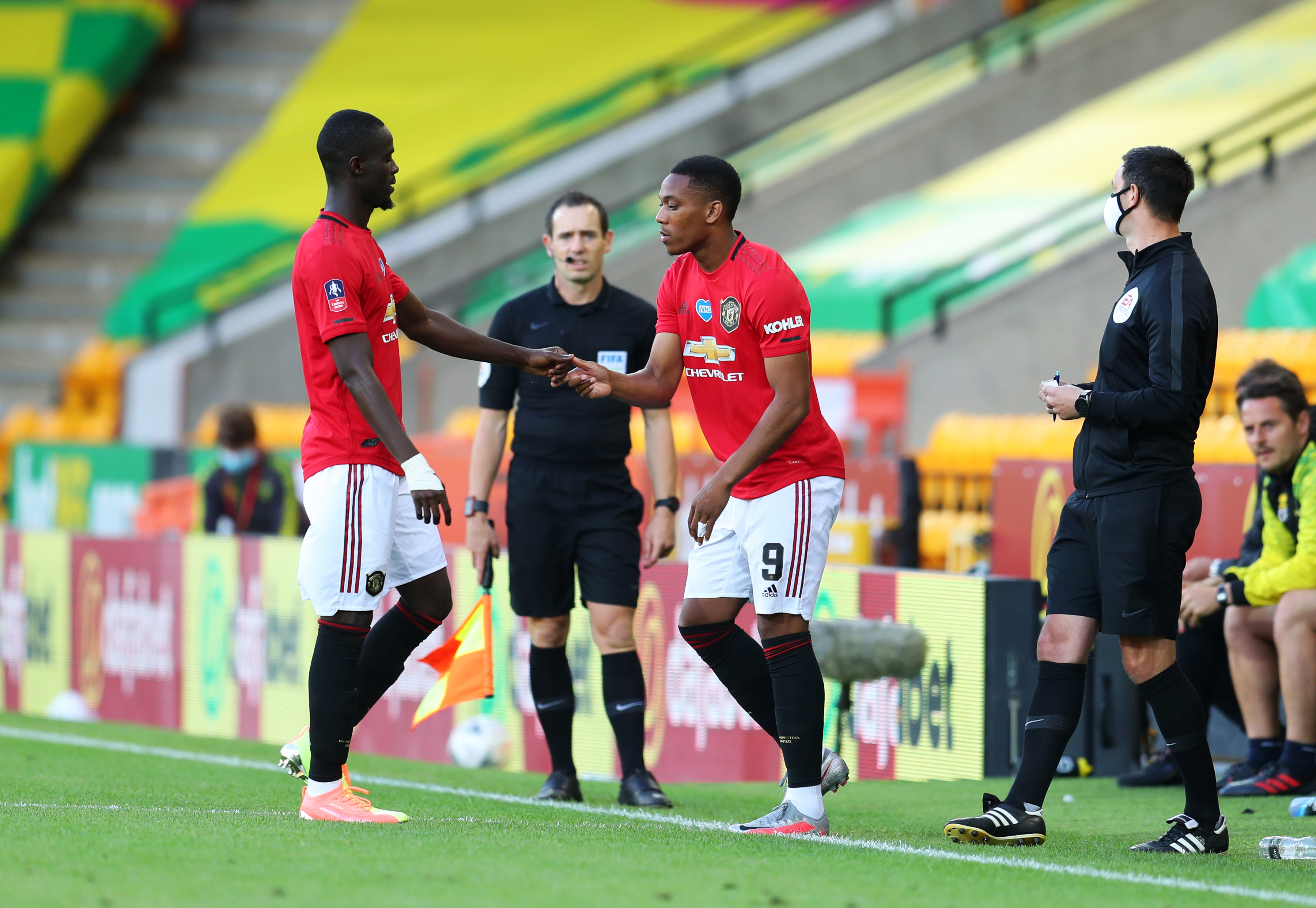Five substitutions per game is a reform that could be here to stay – so how will it change the game?
The temporary coronavirus measure has already had a huge impact on Premier League and FA Cup matches - how might it work in the long term?

There’s always that period of time after new technology is released when nobody really knows what to do with it. Laptops, phones, televisions or video game consoles; those first few months are just full of button-pushing novelty, as designers and consumers are dazed by the shiny newness.
Having an extra two substitutions in football isn’t quite ‘new technology’, nor is it even a permanent change yet, but there’s still that same sense that of nobody knowing quite what to do with them yet
In one sense, they absolutely do, because this has been another prism through which to the see the game’s disparities. On Saturday night, having already used his three subs after 63 minutes, Ole Gunnar Solskjaer was able to introduce Nemanja Matic and Paul Pogba for the final 12 minutes of Manchester United’s FA Cup tie against Norwich City. Granted an additional change in extra-time, Solskjaer then threw on Anthony Martial to further stretch an opponent who had by then been reduced to 10 men.
If that doesn’t illustrate just what a sizeable advantage the bigger clubs have, then nothing does. Should this become a full-time law – which it probably will, because the monied elite will want it to – that would understandably be the loudest complaint. Relevant as that will be, though, a more interesting conversation is how those extra two subs might be used.

Firstly, there’s the obvious dynamic: coaches will have more weapons with which to target weakness, and more defences to reinforce their own fragility. They’ll have more ways of chasing deficits and far more options when protecting leads.
But it could also open the door to all sorts of new trends.
Essentially, having five substitutes allows a coach to make substantial changes to a team, but – crucially – while retaining the ability to undo them later in the game. He could, for instance, if he was working with a traditional winger/full-back dynamic, overload one side of the pitch with specific abilities in a bid to overwhelm an opponent. Or he could completely remove the balance in his midfield, packing it with playmakers or destroyers.
Get FourFourTwo Newsletter
The best features, fun and footballing quizzes, straight to your inbox every week.
The opportunity to do that exists now, of course, but not in quite as pronounced a way. Coaches always have to defer to what might happen after they’ve achieved their desired effect. With that obligation removed, five substitutions present an opportunity to be much bolder. In the hands of quirkier tacticians, it could even be a tool for innovation, creating strange and interesting new trends in the game.
Perhaps one of the five subs could be a true impact player. Someone, for instance, who comes on to establish a quality lacking in the team, like composure, physicality or leadership, before being replaced themselves. Maybe it would even create a cottage industry of ageing, veteran professionals whose sole purpose is to come on for fifteen minutes at a time, rebalance a listing side at a critical moment, and then return to the bench?
What’s being imagined is something ideologically more familiar in sports like ice hockey. Having the ability to sub and replace five players isn’t quite the same as an NHL ‘line change’, but it’s a movement in that sort of direction.
Imagine, for instance, how it could change the strategy of coping with world class players. Faced with a Leo Messi-type, a manager could split the responsibility between three different hatchet men, each given 30-minute shifts in which to subdue by any means necessary, take a yellow card, and then leave the pitch. Two subs made, three remaining; it’s like its own niche within a game plan.

And that’s really only the first layer of implications. Such a change would obviously help the game cope with an increasingly congested calendar. It might also extend a player’s usefulness as he gets older; at the right club, where possession was the imperative virtue, someone like Andrea Pirlo could potentially play until he was forty. At the other end of the spectrum, with more opportunities for involvement, or even a quota in place, perhaps academy graduates might benefit, too.
“You can have five substitutes, but only if… “
Such a change comes with caveats and further worries about the game’s competitive balance, there’s no doubt about that, but it’s a multi-faceted issue and one which – in the right hands, with the right protections – could provide impetus for a significant evolution in the game.
It’s interesting enough to explore, in spite of the obvious problems.
While you're here, why not subscribe to the mag - just £9.99 for the first six months, over £38 cheaper than buying it in the shops!
NOW TRY Quiz! Can you name the Brazilians with 20+ Premier League appearances?
GUIDE Premier League live streams: How to watch every game on this week
Seb Stafford-Bloor is a football writer at Tifo Football and member of the Football Writers' Association. He was formerly a regularly columnist for the FourFourTwo website, covering all aspects of the game, including tactical analysis, reaction pieces, longer-term trends and critiquing the increasingly shady business of football's financial side and authorities' decision-making.
